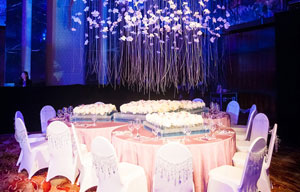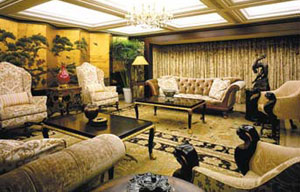East meets West on drafting table
Updated: 2013-04-15 15:10
By Kelly Chung Dawson (China Daily)
|
|||||||||||
Taking a risk
Zhonggui Zhao, a Yale University-educated partner at Zephyr Architects in Beijing, says such clashes with Chinese developers and the government are not isolated.
"On the one hand, you can say that the Chinese developer/government agencies respect the architects," he says. "They are fearless about risk taking. They have helped many Western architects to realize their dream (designs), which would never have been built in their home countries. On the other hand, they are very unprofessional. Most of them don't care about craftsmanship and building quality. That change will take years."
But James Zheng, head of the China operation for Goettsch Partners, a mid-sized firm based in Chicago, notes that there has been a dramatic improvement in the sophistication of developers and clients in the last 10 years.
"They've seen more projects outside China, and these days they're talking in the same language about efficiency and sustainability," he says.
Sern Hong Yu, China regional manager for California-based 5+designs, which was recently commissioned to design the expansion of the China World Trade Center, says local firms are often used to bridge trust issues between the developers and the designers.
"It is very difficult to have the client approve of having a foreign firm work on (anything beyond the design), as the client very often thinks the foreign designers do not understand the local culture and habits of its target consumers," he says. "As such, the foreign firm, more often than not, loses control of the project and the end result is a project that ends up nothing like what was envisioned during the early concept stages."
Notable differences that have posed problems for Western designers in China include the requirement of feng shui friendly design, a reliance on native building materials, far less rigid safety standards, and varying electrical, plumbing and structural systems, Kudo-King says. But many of the differences simply require Western designers to adapt to new ways of thinking about things, he says.
Chinese architectural firms still dominate the market in lower profile projects and smaller cities, says Li Xiangning, a professor at Tongji University's College of Architecture and Urban Planning in Shanghai.
But as Western firms continue to stream into the Chinese market, the field will only benefit from the creativity that such collaborations inspire, Kudo-King says.
"There's this cross-pollination of ideas, where ideas that originate in both cultures come together to create something unique and truly special. I think there's a realization today that there needs to be a clear, shared vision. We're seeing that more and more."
Related Stories
Architecture and food in Argentine wineries 2012-12-17 11:57
Colorful architecture? He's got a bright idea! 2012-10-14 09:35
Architectures in Shanghai 2012-10-08 14:58
Architecture fraternity mourns Luo's death 2012-05-21 10:15
Museum architecture 2012-04-13 10:36
Today's Top News
Police continue manhunt for 2nd bombing suspect
H7N9 flu transmission studied
8% growth predicted for Q2
Nuke reactor gets foreign contract
First couple on Time's list of most influential
'Green' awareness levels drop in Beijing
Palace Museum spruces up
Trading channels 'need to broaden'
Hot Topics
Lunar probe , China growth forecasts, Emission rules get tougher, China seen through 'colored lens', International board,
Editor's Picks

|

|

|

|

|

|







